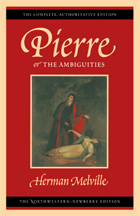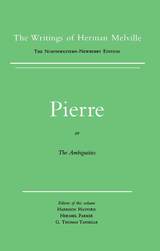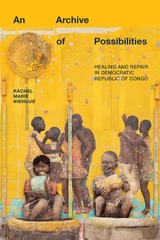3 books about Pierre

Closet Writing/Gay Reading
The Case of Melville's Pierre
James Creech
University of Chicago Press, 1994
One of the most urgent tasks for gay studies today, James Creech argues, is the retrieval of a repressed, "closeted" literary heritage. But contradictions and problems cloud even the most basic theoretical questions: What does a lesbian or gay reading of a literary text require or presume? Can we talk about a homosexual writer expressing him- or herself before the invention of "homosexuality"? Was it possible for a writer like Herman Melville, for example, to create literary works linked to his own prohibited eros?
In Closet Writing/Gay Reading, Creech shows how a literary critic can be receptive to implicit and closeted sexual content. Forcefully advocating a tactic of identification and projection in literary analysis, he lends renewed currency to the kind of "sentimental" response to literature that continental theory—particularly deconstruction—has sought to discredit.
In the second half of his book, Creech sets out to analyze what he considers the exemplary novel of the nineteenth-century closet, Melville's Pierre, or: The Ambiguities. By approaching Pierre as the gay man Melville longed to have as its reader, Creech is able to decipher the novel's "encrypted erotics" and to reveal that Melville's apparent tale of incest is actually a homosexual novel in disguise. The closeted "address" to queer-sensitive readers that Pierre disseminates finally receives a critical reading that strives to be explicit, shareable, and public.
In Closet Writing/Gay Reading, Creech shows how a literary critic can be receptive to implicit and closeted sexual content. Forcefully advocating a tactic of identification and projection in literary analysis, he lends renewed currency to the kind of "sentimental" response to literature that continental theory—particularly deconstruction—has sought to discredit.
In the second half of his book, Creech sets out to analyze what he considers the exemplary novel of the nineteenth-century closet, Melville's Pierre, or: The Ambiguities. By approaching Pierre as the gay man Melville longed to have as its reader, Creech is able to decipher the novel's "encrypted erotics" and to reveal that Melville's apparent tale of incest is actually a homosexual novel in disguise. The closeted "address" to queer-sensitive readers that Pierre disseminates finally receives a critical reading that strives to be explicit, shareable, and public.
[more]

Pierre, or The Ambiguities
Volume Seven
Herman Melville
Northwestern University Press, 1995
Initially dismissed as "a dead failure" and "a bad book," and declined by Melville's British publisher, Pierre has since struck critics as modern in its psychological probings and literary technique--fit, as Carl Van Vechten said in 1922, to be ranked with The Golden Bowl, Women in Love, and Ulysses. None of Melville's other "secondary" works has so regularly been acknowledged by its most thorough critics as a work of genuine grandeur, however flawed.
When Pierre Glendinning's lifelong desire for a sister is seemingly realized on the eve of his marriage, his world is suddenly turned upside down, for he must choose between acknowledging his illegitimate half-sister or perpetuating his unsullied family legacy. Melville unfolds the story of an idealistic young man whose steadfast beliefs lead him to destroy his world and himself.
When Pierre Glendinning's lifelong desire for a sister is seemingly realized on the eve of his marriage, his world is suddenly turned upside down, for he must choose between acknowledging his illegitimate half-sister or perpetuating his unsullied family legacy. Melville unfolds the story of an idealistic young man whose steadfast beliefs lead him to destroy his world and himself.
[more]

Pierre, or The Ambiguities
Volume Seven, Scholarly Edition
Herman Melville
Northwestern University Press, 1971
Initially dismissed as "a dead failure" and "a bad book," and declined by Melville's British publisher, Pierre, or The Ambiguities has since struck critics as modern in its psychological probings and literary technique--fit, as Carl Van Vechten said in 1922, to be ranked with The Golden Bowl, Women in Love, and Ulysses. None of Melville's other "secondary" works has so regularly been acknowledged by its most thorough critics as a work of genuine grandeur, however flawed.
This scholarly edition aims to present a text as close to the author's intention as the surviving evidence permits. Based on collations of the two issues and the two impressions of the single edition publishing in Melville's lifetime, it incorporates necessary emendations made by the series editors. This text of Pierre is an Approved Text of the Center for Editions of American Authors (Modern Language Association of America).
This scholarly edition aims to present a text as close to the author's intention as the surviving evidence permits. Based on collations of the two issues and the two impressions of the single edition publishing in Melville's lifetime, it incorporates necessary emendations made by the series editors. This text of Pierre is an Approved Text of the Center for Editions of American Authors (Modern Language Association of America).
[more]
READERS
Browse our collection.
PUBLISHERS
See BiblioVault's publisher services.
STUDENT SERVICES
Files for college accessibility offices.
UChicago Accessibility Resources
home | accessibility | search | about | contact us
BiblioVault ® 2001 - 2024
The University of Chicago Press









